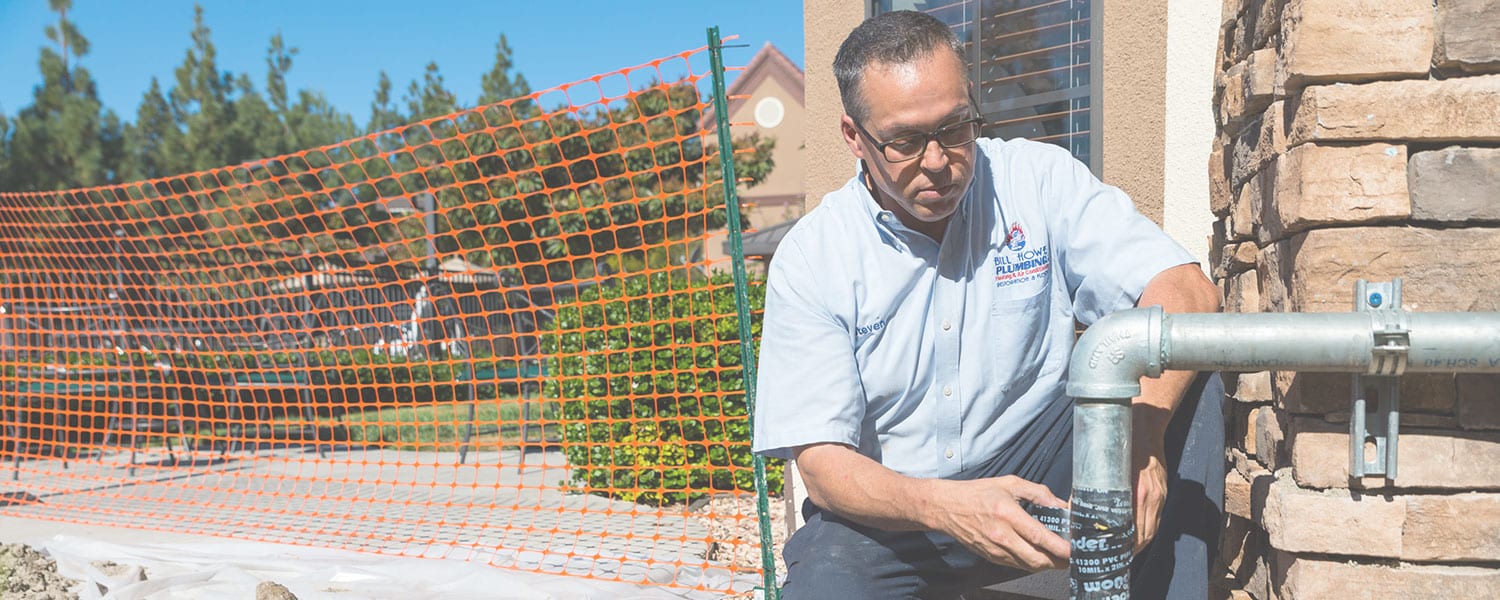When the temperatures rise, there’s nothing quite like the comfort of turning on your air conditioner. An AC unit is essential for maintaining a comfortable home, especially during a heat wave. However, if your AC is blowing warm air or struggling to keep your home cool, you might be wondering if it’s time for a replacement. So, how long do AC units typically last?
Average Air Conditioner Lifespan
Older AC units are more prone to repairs. And, in order to function properly and efficiently, HVAC repair by a licensed HVAC specialist is necessary. But how long should an AC unit last? With regular maintenance and quality installation, most homeowners can expect their air conditioning units to last anywhere from 10 to 15 years. However, even the best-maintained systems will eventually require replacement.
How A/C units work

Understanding how air conditioner units work can help you take better care of your system, giving you peace of mind about how long your air conditioning unit will last. Air conditioning units have four basic functions:
- Control indoor air temperature
- Control indoor humidity levels
- Circulate and ventilate air
- Cleanse the air
Your air conditioning unit relies on several major components: the condenser, compressor, and evaporator.
Condenser
The air conditioning condenser unit is located outside your home and houses the compressor, outdoor coils, and fan. The compressor takes the refrigerant liquid and changes it into a compressed gas, pumping it into the air handler.
Evaporator Coil
Warm air inside your home is pulled up through the return register (usually the largest vent in your home) and blown across the evaporator coil. The air handler, which houses the evaporator coil, is a key component of the air conditioning system. The cooled refrigerant from the compressor absorbs the warm air pulled in from the return and blower motor and pushes it out through the supply registers. Supply registers are typically located high on the walls, ceilings, and sometimes in the floors, depending on the ducting system setup. The outdoor coils and fans in the condenser unit take the warmed refrigerant once it has passed through the air handler and release the heat into the outside air.
Thermostat
The thermostat is the device that tells the system to work. You can set the desired temperature at the thermostat to activate the mechanical system, and the components will begin working. Many people are unaware that an air conditioning system does not necessarily “cool” the air in the way one might expect, so setting the thermostat to significantly cooler temperatures does not guarantee the home will reach those temperatures.
Most air conditioning units work with approximately a 20-degree split between the outside air and the air coming out of the vents. If the home is 85 degrees, the air coming out of the vents should be around 65 degrees. When the home is warmer, the air conditioning system has to work harder to remove the warm air. Most HVAC specialists recommend installing and setting a programmable thermostat to maintain temperatures in the desirable range of 75-78 degrees.
Common Failures
HVAC contacts and capacitors are part of the electrical system and commonly fail due to many reasons including shorts, rodents chewing through wires, and overheating. Luckily, these are some of the easier repairs and do not indicate system failure.
Compressor
When the compressor fails, it can be very costly to fix. The compressor is akin to the engine of a vehicle. Once the compressor reaches about 6 or 7 years old, repair is not always recommended. If the compressor is out of warranty, and the repair cost is high, replacement may be a better option in the long run.
Dirt & Debris
A system that is not maintained can become dirty, with dust and debris building up over time. This can cause various components to fail and decrease the system’s efficiency. During regular maintenance, air conditioning specialists will ensure that all components are cleaned and checked.
What Impacts the Lifespan of an AC Unit?
There’s no denying that AC maintenance is an essential way to prolong your air conditioner’s lifespan. And just like your vehicle, TLC goes a long way. But even if it’s an older unit and still seems to be doing its job, when is it time to consider an upgrade? You already know an AC unit’s lifespan is about 10 to 15 years. But should you replace it when it’s out of warranty? Have the number of repairs and money you’ve spent made you think that its useful life is just about over?
Whether to repair or replace the AC is a question homeowners will eventually have to face. Of course, besides a total breakdown, certain factors can impact the average life of an AC unit.
The following are some factors that can impact how much life you’ll get from your air conditioner:
The quality of the installation: When a unit isn’t correctly installed, the air blowing in your room may not be properly filtered. An improperly installed AC unit will experience quicker wear and tear on essential components, which means more repairs and eventual breakdown. Make sure to hire a trustworthy AC professional from Bill Howe, who will ensure proper installation.
Wrong size: If the incorrect size AC is installed, it uses more energy. An overworked AC unit means it will have a shorter lifespan.
High humidity and other climate issues: High humidity will cause your AC to work harder and longer. Damp or musty smells, foggy windows, and moist air are all signs that the humidity is too high in your home.
Salty sea air: Saltwater can damage essential parts of an air conditioner. Salty sea air can corrode and deteriorate metals such as steel and aluminum. The condenser coil, which is made up of copper tubes and has aluminum fins, is vulnerable to salty sea air. A damaged condenser coil can lead to refrigerant leaks, reduced cooling capacity, and potential AC unit failure. Regular maintenance includes cleaning, which will help in areas with salty air, like near the beach.
Irregular maintenance: When did you last schedule an air conditioner tune-up? Proper upkeep is vital and can prolong an AC unit’s lifespan.
How often you use it: Staying nice and cool indoors when it’s blazing hot outdoors is a perk of having an AC. But if you let it run constantly, it will eventually break down. An HVAC system is just like any other household appliance. The more you use it, the quicker the possibility of a breakdown. If the weather is mild, open the windows for cool air.
Placement of AC unit: Where your air conditioner is installed also plays a factor in determining its lifespan. For example, an HVAC unit will run more efficiently in a clear area in your yard. If it’s near hedges or bushes, try to keep them trimmed. If you notice a buildup of leaves and debris around the unit, clear the area and keep it clean.
How to Extend an Air Conditioner’s Lifespan
Fortunately, you can take action to extend your air conditioner’s lifespan by scheduling routine AC maintenance. An HVAC professional should inspect and maintain your AC at least once a year, though twice a year is ideal. During these visits, specialists will perform safety checks, clean the system, and ensure its efficiency. They will also check wiring and ducting, as well as perform safety inspections. This is especially important for furnaces, as a malfunctioning unit can produce carbon monoxide.
An AC tune-up typically includes replacing or cleaning the air filters to improve the air quality. You can also schedule AC troubleshooting to diagnose any ongoing issues. If you notice unusual noises or strange smells coming from the unit, it’s important to call an HVAC professional immediately.
Regular maintenance is required by manufacturers to keep warranties intact. It also helps identify potential issues early, saving you from larger repair costs in the future and extending the lifespan of your system.
Cons of Using an Old AC Unit
Still on the fence about replacing your HVAC system? Well, you won’t have to spend your hard-earned money on a new unit, but your older air conditioner is likely working much harder than it should. A less efficient HVAC system doesn’t cool your home as well as it used to — it’s also increasing your energy bill. Additionally, many older units use outdated refrigerants that are now banned by the EPA.
There are other downsides to using an older air conditioner, including:
- It may be hosting bacteria, fungi, and pollen
- Can pose respiratory health risks
- Use ozone-depleting refrigerants
- It can be a fire hazard
- Older AC systems tend to break down more often
How to Know if You Need to Replace Your Air Conditioner
Some of the most common signs that you need to replace your AC are below:
The unit still uses the old R-22 refrigerant. Air conditioning refrigerants have undergone many changes over the years, and the once-popular R-22 has been phased out. If homeowners have a system that still uses R-22, such as those manufactured before 2010, replacement is imminent, and homeowners should consider getting an estimate for a new, efficient system.
You have an old HVAC system. An aging system can start to slow down at about ten years old. With an air conditioner’s lifespan hovering at the 10-to-15-year range, it’s wise to consider replacement. Newer models are much more efficient than older models, and aging systems may need to be repaired more often. Newer equipment is also much quieter and has a smaller footprint.
Repairs are becoming more expensive. If a critical component, such as the compressor, fails and the repair cost is high, it may be a good time to consider replacement. Most newer AC units may encounter occasional issues, but repairs are generally affordable. However, when major components begin to fail, it could indicate that the air conditioning unit is nearing the end of its lifespan.
Inefficient cooling. If the air conditioning unit is not efficiently cooling or controlling the temperature in the home, it is time to take a look at the system and consider replacement. Most often, when the system begins to break down, homeowners will notice inconsistencies in air temperature and cooling capabilities.
High energy costs. Have you noticed a constant uptick in your energy bill? Older AC units have to work harder and longer to cool or heat your home, which can lead to higher energy bills. A modern HVAC system is significantly more energy efficient than 10 – 20-year-old units. When you replace an older AC unit with a newer model, you might be able to cut up to 40% off your energy bill.
Your home has more dust than usual. Replacing an air filter is supposed to minimize the amount of dust in your home. But if you’ve already had the filters replaced and you’re still seeing a constant layer of dust in the air and on your furniture, it’s a sign that your AC isn’t working correctly.
It’s starting to smell bad. Do you smell smoke when you turn on your AC? How about a mildewy odor? Foul smells like those we just mentioned are signs of something significant happening with your HVAC system. Your AC unit may have electrical issues or mold growth, which should be addressed by a professional immediately.
Getting a New Air Conditioning System
Replacing an air conditioning system due to failure or inefficiency is a big investment, but the process should never be difficult. In San Diego, heating and air conditioning specialists typically offer incentives for looking at a replacement in the pre-season months before summer. Since San Diego has near-perfect weather, springtime is the easiest to schedule maintenance and new system estimates, and often companies can turn around and install new systems quickly.
Things homeowners should consider when gathering estimates for a new air conditioning system.
Get multiple estimates. Homeowners should get multiple estimates for such a large purchase and investment as the air conditioning going into their home.
Review estimates. Homeowners should make sure that when reviewing estimates, they are researching manufacturer recommendations and looking at all of the options presented. Most air conditioning specialists will provide several quotes tailored to budget and home air comfort needs.
Choose a reputable, licensed company. Any specialist you choose should have at least 5-10 years of solid business experience, a good reputation, and many years of experience within the company. Make sure the installation crew is experienced and certified. Not all estimates are the same, and the products being used are not as important as the installation process.
Do not pay for an estimate. All new installation estimates should be free for homeowners. If a company requires a deposit or fee to visit your home, move on, as other reputable companies are happy to provide an estimate.
Spend time with the estimator. A good home comfort advisor will spend at least an hour with the homeowner. It is important to understand the home and needs of the family to provide the right equipment, size, configuration, and products. Spend time and ask questions.
Call Bill Howe Today
Bill Howe is proud to be your go-to for HVAC services. If you are still not sure how long your air conditioning unit should last and are considering a replacement, consider the experts at Bill Howe Heating & Air Conditioning. Our team of certified technicians will gladly answer any of your questions about your air conditioner. You can always schedule an AC unit maintenance appointment with a technician who will thoroughly inspect the entire unit and offer recommendations. With free estimates, certified and trained technicians, and over four decades of experience, Bill Howe has all the expertise you need.
From drain cleaning to HVAC installation and plumbing inspections, when it comes to keeping your home or business comfortable, no one beats Bill Howe. Call 1-800 BILL HOWE (245-5469) for your free estimate today.




